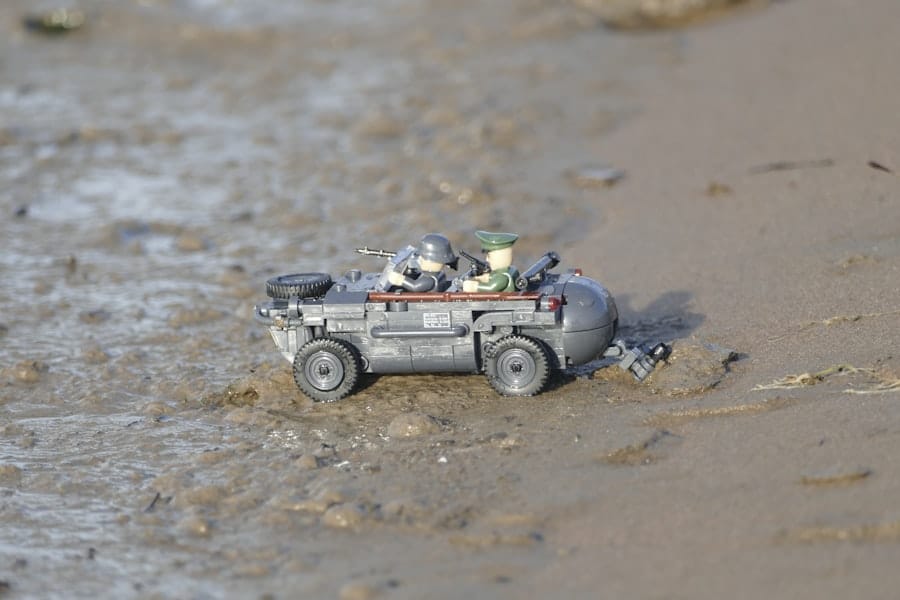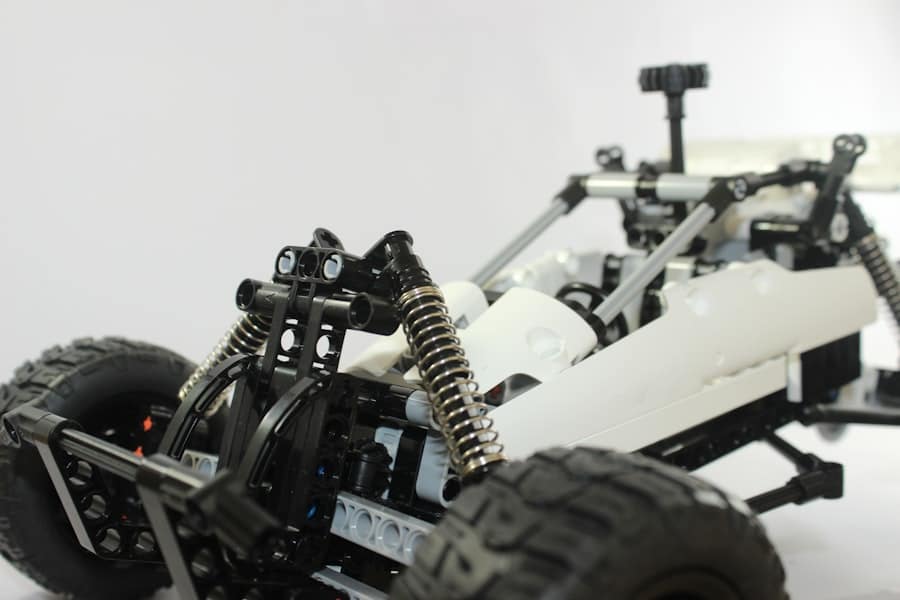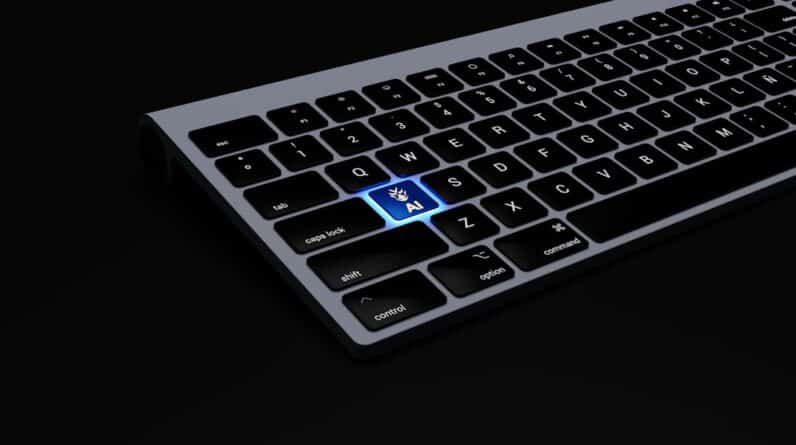As you gaze up at the night sky, filled with countless stars and the mysteries of the universe, it’s hard not to wonder about the possibilities that lie beyond our planet. The advent of artificial intelligence (AI) has opened new frontiers in space exploration, transforming how we understand and interact with the cosmos. AI is no longer just a concept confined to science fiction; it is a powerful tool that enhances our capabilities in exploring the vastness of space.
From autonomous spacecraft to intelligent data analysis, AI is revolutionizing the way we conduct missions beyond Earth. The integration of AI into space exploration is not merely a trend; it represents a paradigm shift in how we approach the challenges of venturing into the unknown. As you delve deeper into this topic, you will discover how AI systems are designed to assist scientists and engineers in making sense of complex data, optimizing mission parameters, and even making real-time decisions in environments where human intervention is limited or impossible.
The journey of AI in space exploration is just beginning, and its potential is as limitless as the universe itself.
Key Takeaways
- AI plays a crucial role in space exploration by assisting in various tasks such as data analysis, decision making, and autonomous operation.
- Using AI in space missions can lead to increased efficiency, reduced human error, and the ability to handle large volumes of data in real-time.
- The advantages of using AI in space exploration include improved mission success rates, cost savings, and the ability to explore more complex and distant celestial bodies.
- Challenges and limitations of AI in space exploration include the need for robust and reliable AI systems, potential cybersecurity threats, and ethical considerations.
- Examples of AI in space exploration include autonomous rovers, predictive maintenance for spacecraft, and machine learning algorithms for analyzing space data.
The Role of AI in Space Missions
In the realm of space missions, AI plays a multifaceted role that enhances both operational efficiency and scientific discovery. You might be surprised to learn that AI systems are employed in various capacities, from navigation and control to data processing and anomaly detection. For instance, autonomous spacecraft equipped with AI can analyze their surroundings and make decisions without waiting for instructions from mission control on Earth.
This capability is particularly crucial during deep-space missions, where communication delays can hinder timely responses to unforeseen challenges. Moreover, AI algorithms are instrumental in processing the vast amounts of data generated by space missions. As you consider the sheer volume of information collected by telescopes, rovers, and satellites, it becomes clear that human analysts alone cannot keep pace.
AI can sift through this data, identifying patterns and anomalies that may go unnoticed by human eyes. This not only accelerates the pace of discovery but also allows scientists to focus on interpreting results rather than getting bogged down in data management.
Advantages of Using AI in Space Exploration

The advantages of incorporating AI into space exploration are numerous and compelling. One significant benefit is the enhancement of mission safety and reliability. With AI systems capable of real-time monitoring and decision-making, spacecraft can respond to emergencies more effectively than ever before.
Imagine a scenario where a spacecraft encounters an unexpected obstacle; an AI system can quickly assess the situation and execute evasive maneuvers, potentially saving the mission from disaster. Additionally, AI contributes to cost efficiency in space exploration. Traditional missions often require extensive human oversight and intervention, which can be resource-intensive.
By automating various processes through AI, agencies can reduce operational costs while increasing mission success rates. You may find it fascinating that AI can also optimize resource allocation during missions, ensuring that energy and materials are used judiciously. This efficiency is particularly vital for long-duration missions where resources are limited.
Challenges and Limitations of AI in Space Exploration
Despite its many advantages, the integration of AI into space exploration is not without challenges and limitations. One primary concern is the reliability of AI systems in unpredictable environments. Space is inherently hostile, with conditions that can change rapidly and unexpectedly.
You might ponder how an AI system can be trained to handle such variability when it lacks the experiential learning that humans possess. Ensuring that AI can adapt to unforeseen circumstances remains a significant hurdle for engineers and scientists. Another challenge lies in the ethical implications of using AI in critical decision-making processes.
As you reflect on this issue, consider the potential consequences of an AI system making a mistake during a mission. The question arises: who is responsible for those decisions? The complexity of programming ethical considerations into AI systems adds another layer of difficulty.
As we push the boundaries of exploration, it becomes increasingly important to address these ethical dilemmas to ensure that our technological advancements align with our values.
Examples of AI in Space Exploration
Several notable examples illustrate the successful application of AI in space exploration. One prominent case is NASA’s Mars Rover missions, particularly the Perseverance rover, which employs advanced AI algorithms for navigation and scientific analysis. As you explore its capabilities, you will find that Perseverance can autonomously select targets for its instruments based on real-time assessments of its environment.
This autonomy allows it to cover more ground efficiently while conducting experiments that could reveal signs of past life on Mars. Another fascinating example is the European Space Agency’s (ESA) use of AI in satellite operations. ESA has developed an AI system called “AI4Earth,” which analyzes satellite data to monitor environmental changes on Earth.
This initiative not only aids in understanding climate change but also demonstrates how AI can bridge the gap between space exploration and terrestrial applications. As you consider these examples, it becomes evident that AI is not just a tool for exploration; it is also a means to address pressing global challenges.
Future Prospects and Developments in AI for Space Exploration

Looking ahead, the future prospects for AI in space exploration are both exciting and promising. As technology continues to advance, you can expect to see even more sophisticated AI systems capable of handling increasingly complex tasks. For instance, researchers are exploring the potential of machine learning algorithms that can improve their performance over time through experience—much like humans do.
This could lead to autonomous spacecraft that learn from their surroundings and adapt their strategies accordingly. Moreover, as international collaboration in space exploration grows, so too will the opportunities for shared AI technologies. You might envision a future where multiple space agencies collaborate on missions using interconnected AI systems that share data and insights in real time.
This collaborative approach could enhance mission success rates and accelerate scientific discoveries across borders. The possibilities are vast, and as you contemplate the future of AI in space exploration, it becomes clear that we are only scratching the surface of what is achievable.
Ethical and Legal Considerations in AI for Space Exploration
As you delve deeper into the implications of using AI in space exploration, ethical and legal considerations come to the forefront. One pressing issue is accountability—who is responsible when an AI system makes a mistake? In scenarios where autonomous spacecraft operate independently, determining liability becomes complex.
You may find yourself questioning how we can establish frameworks that ensure accountability while fostering innovation. Additionally, there are concerns about data privacy and security when using AI systems in space missions. The vast amounts of data collected during these missions often contain sensitive information that must be protected from unauthorized access or misuse.
As you reflect on these challenges, consider how policymakers and scientists must work together to create regulations that safeguard both technological advancements and ethical standards.
The Future of AI in Space Exploration
In conclusion, as you contemplate the future of artificial intelligence in space exploration, it becomes evident that we stand on the brink of a new era filled with possibilities. The integration of AI into our missions not only enhances our capabilities but also reshapes our understanding of what it means to explore the cosmos. While challenges remain—ranging from technical limitations to ethical dilemmas—the potential benefits far outweigh these obstacles.
As we continue to push the boundaries of exploration, embracing AI will be crucial for unlocking new discoveries and addressing global challenges. The journey ahead promises to be as thrilling as it is transformative, inviting you to imagine a future where humanity’s reach extends far beyond Earth, guided by intelligent systems designed to navigate the complexities of space. The stars are no longer just distant points of light; they represent opportunities waiting to be explored with the help of artificial intelligence.
AI in Space Exploration: A Frontier to Conquer discusses the use of artificial intelligence in advancing space exploration. For further insights into the applications of AI in various industries, including finance, risk management, and predictive analysis, check out the article AI in Finance: Predictive Analysis, Risk Management, and More. This article delves into how AI is revolutionizing the financial sector and enhancing decision-making processes.
FAQs
What is AI in space exploration?
AI in space exploration refers to the use of artificial intelligence technologies to enhance and automate various aspects of space missions, including spacecraft operations, data analysis, and decision-making processes.
How is AI used in space exploration?
AI is used in space exploration for a variety of purposes, such as autonomous navigation, predictive maintenance of spacecraft, analysis of large volumes of data collected from space missions, and the development of intelligent robotic systems for planetary exploration.
What are the benefits of using AI in space exploration?
The use of AI in space exploration can lead to improved mission efficiency, reduced human intervention, faster data analysis, and the ability to tackle complex tasks in extreme environments, ultimately advancing our understanding of the universe.
What are some examples of AI applications in space exploration?
Examples of AI applications in space exploration include autonomous rovers like NASA’s Mars rovers, predictive maintenance systems for spacecraft, intelligent scheduling and resource management for space missions, and machine learning algorithms for analyzing astronomical data.
What are the challenges of using AI in space exploration?
Challenges of using AI in space exploration include the need for robust and reliable AI systems in harsh space environments, the potential for AI systems to make errors, and the ethical considerations of autonomous decision-making in space missions.






